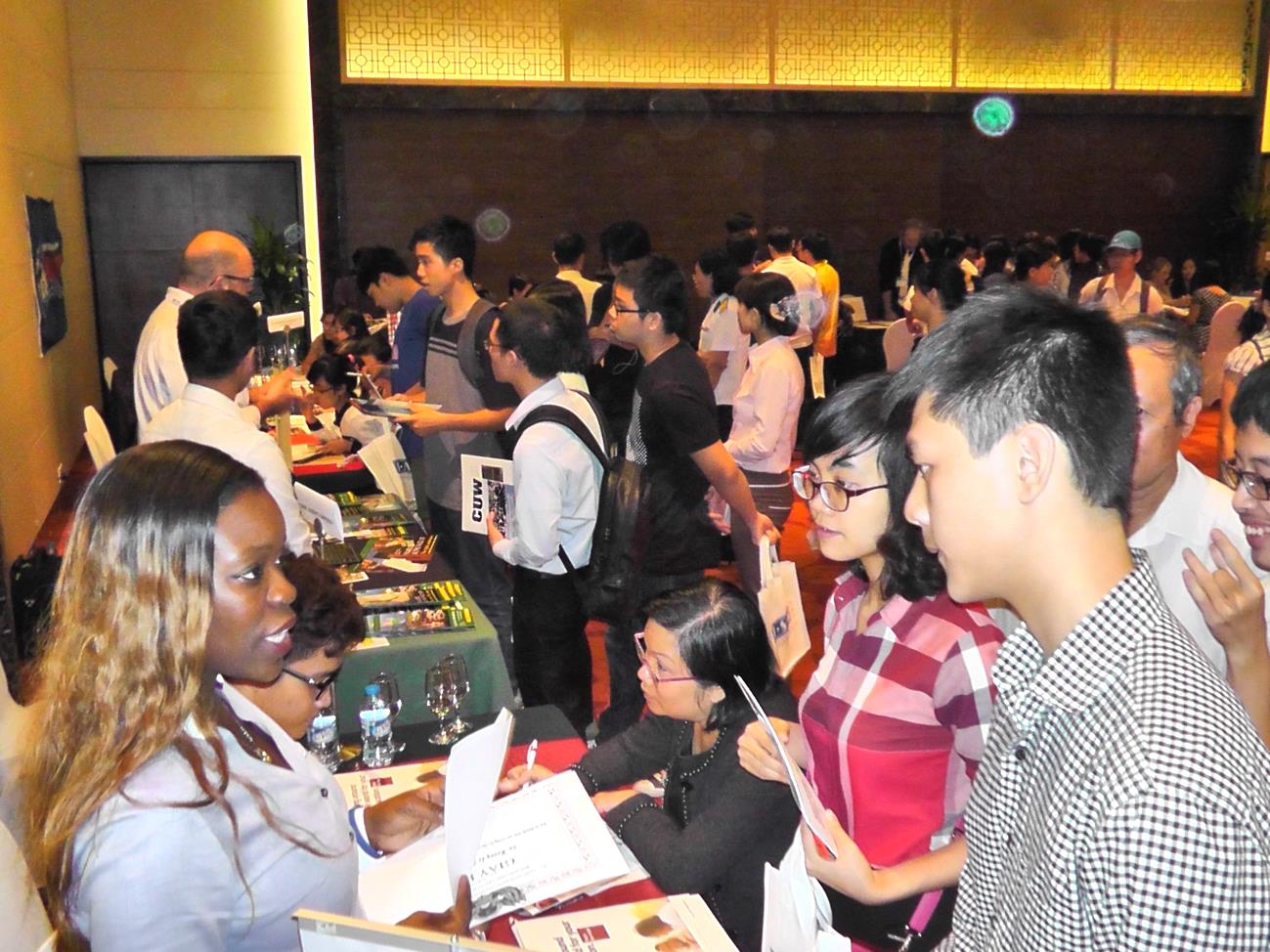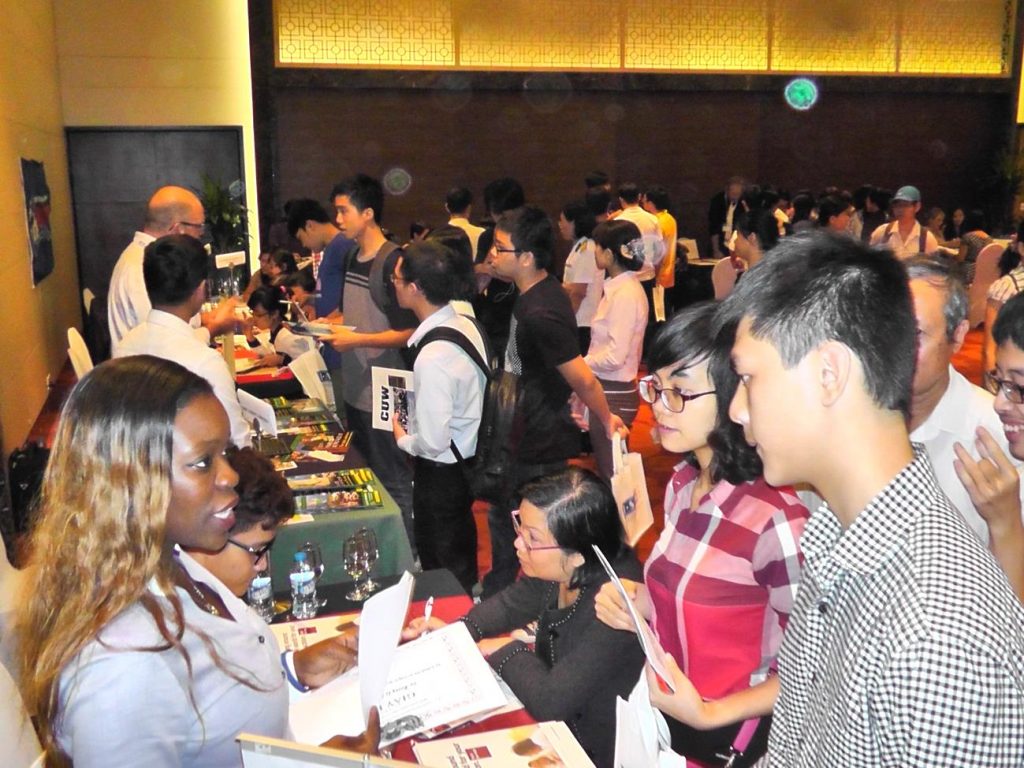
According to TGTT – Mr. Tran Duc Canh, an American education expert, had a conversation with U.S. Ambassador Ted Osius during a lunch discussing Vietnam’s educational issues in the context of Vietnam-U.S. relations, along with key figures in education. Although Vietnam’s education system still faces many challenges, recent changes have been seen as more open and positive.
In your opinion, what are the key highlights of Vietnam-U.S. educational relations over different periods?
One of the important connections in Vietnam-U.S. relations is the development of education between the two countries over more than a quarter of a century. Even before the two countries had official diplomatic relations, the Fulbright Scholarship program started in 1991, through intermediaries such as Harvard University. On average, about 25 students participate in the master’s and research programs each year. Currently, many Vietnamese leaders have been trained through this program. The Fulbright Economics Teaching Program in Ho Chi Minh City has about 65 students enrolled each year. Soon, this program will become the first master’s program of Fulbright University.
Following that, the Vietnam Education Foundation (VEF) scholarship was established under the VEF Act of 2000, with about 40 Vietnamese students receiving scholarships each year to study at the top 100 research universities in the U.S. in applied science and engineering, mostly at the doctoral level. So far, about 700 students have graduated and returned to Vietnam, playing a significant role in the development of science and technology. Additionally, there are other scholarship programs from the U.S. such as Hubert Humphrey, Ford Foundation…
It is also worth mentioning that the Harvard group has made significant contributions to the development and establishment of most of these programs.

In your opinion, are there any similarities between Vietnam’s education system and that of the U.S. today?
American education has been greatly influenced by European, particularly British, education in its early stages, and it has developed and surpassed in the last 100 years. The American education system today is considered the most advanced in the world due to its flexibility, diversity, high research and application capabilities in academic environments, and the accumulation of global knowledge and civilization by attracting talents from around the world to research and teach. Currently, the U.S. hosts over 1 million international students, making it the country with the largest number of international students in the world.
Vietnam has a long-standing education system that has gone through various historical periods, from feudal to Western (French) education, to Russian and Eastern European, and now American… Vietnam’s education system is increasingly engaging with major countries around the world, especially the U.S., which is a positive sign. With about 150,000 Vietnamese students studying abroad, Vietnam needs to rapidly change its domestic education system to meet the practical development needs of society.
American education also has its weaknesses, particularly at the elementary and secondary levels, but due to its flexible structure and sense of responsibility, they change and improve very quickly. This is also the weakest point of Vietnam’s current education system.
There is a fundamental issue that the education system must start with choosing a philosophy of education to solve the core of training. What do you think?
A philosophy of education is the “compass” of any education system. An education system without a clear philosophy will fall into a confusing mix of light and darkness. Having absorbed a humanistic, national, and liberal education myself, I understand very well the importance of a philosophical foundation in education. The goal of education must be to train individuals with independent thinking, reasoning, judgment, and creativity, alongside professional training after secondary education. An education system that trains in a rigid, dogmatic manner lacks confidence in the inherent goodness of each individual and the comprehensive versatility of the system, which will lead to failure, especially in today’s diverse, versatile, and integrated world.
Besides, in your opinion, should the change in education start with teachers, parents, or administrators?
It must begin with the philosophy of education, followed by the objectives to be achieved. There is a saying in English, “It takes a village to raise a child.” Education is not just the work of schools, teachers, parents… but of a whole society, both large and small. Therefore, to change education, we must change the awareness and sense of responsibility of each individual and society.
In my opinion, a “holistic” mindset is necessary to have a comprehensive picture, comprehensive evaluation, and comprehensive solutions to effectively solve the current education problem. Thus, education administrators, teachers, parents, and the surrounding social environment must share the same understanding, perspective, and honest voice about the reality and issues of current education. This is the core.
Currently, obtaining a U.S. student visa is a major concern for families who want to send their children to study here. Can you share some information about this?
Currently, the number of Vietnamese students in the U.S. is over 25,000, ranking 6th among countries. However, the rate of self-funded students being denied visas is also very high. The main reason is the high “stay factor” compared to other countries. Therefore, the visa department carefully examines academic performance, language proficiency, and family finances (the ability to sponsor during the study period).
During a recent discussion with visa officials, I was truly shocked by the rate of student visa denials. They said they would review and work more carefully and create favorable conditions for cases that prove legitimate study intentions. I have suggested to the leadership of the U.S. visa department to organize talks, seminars, and widely disseminate information through the media about the conditions and criteria for obtaining a U.S. student visa so that families and students can prepare.
“Mr. Tran Duc Canh, formerly a member of the Harvard University Admissions Advisory Board, a member of the Massachusetts State University Council, and the former Director of Training and Human Resource Development for the state of Massachusetts. He was recently appointed by the Prime Minister to the National Education Council and Human Resource Development.”
Ha Tran conducted the interview
According to TGTT